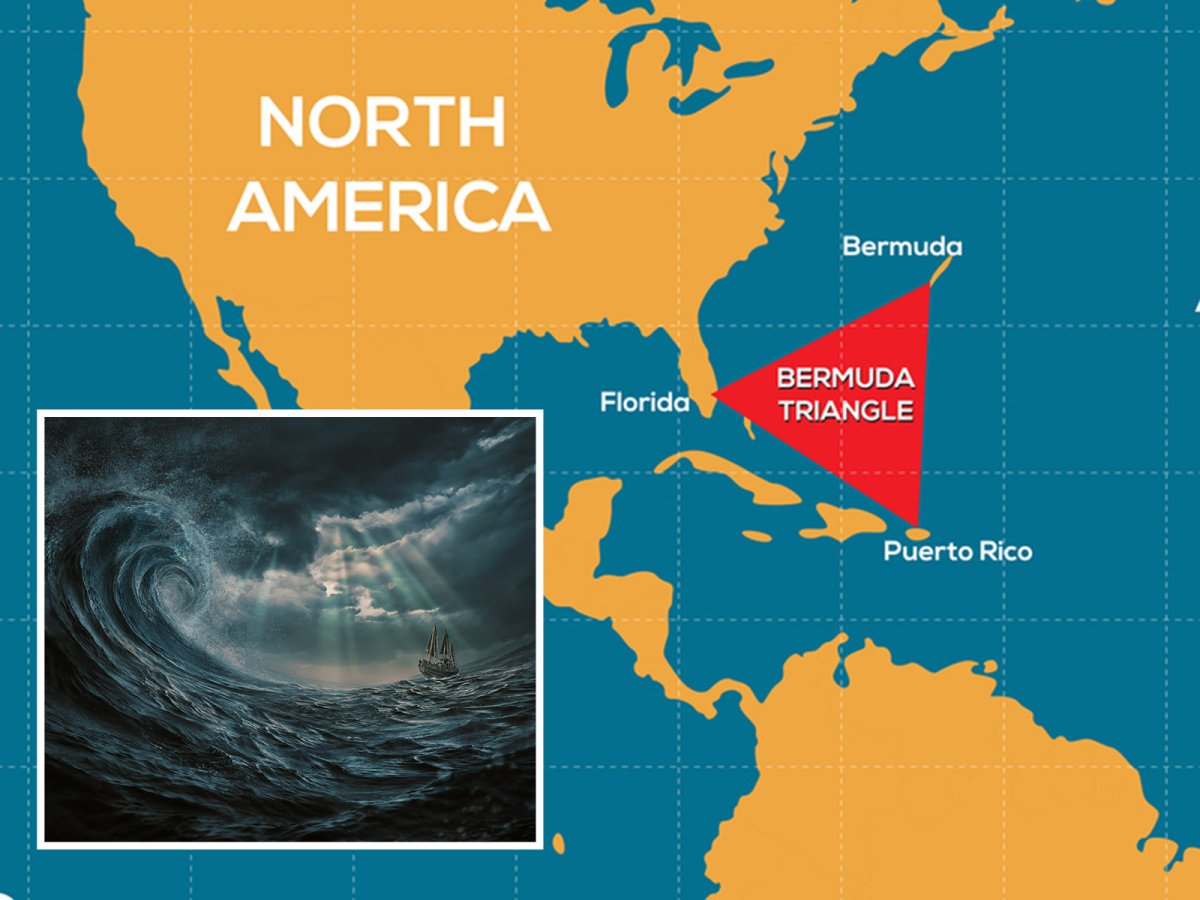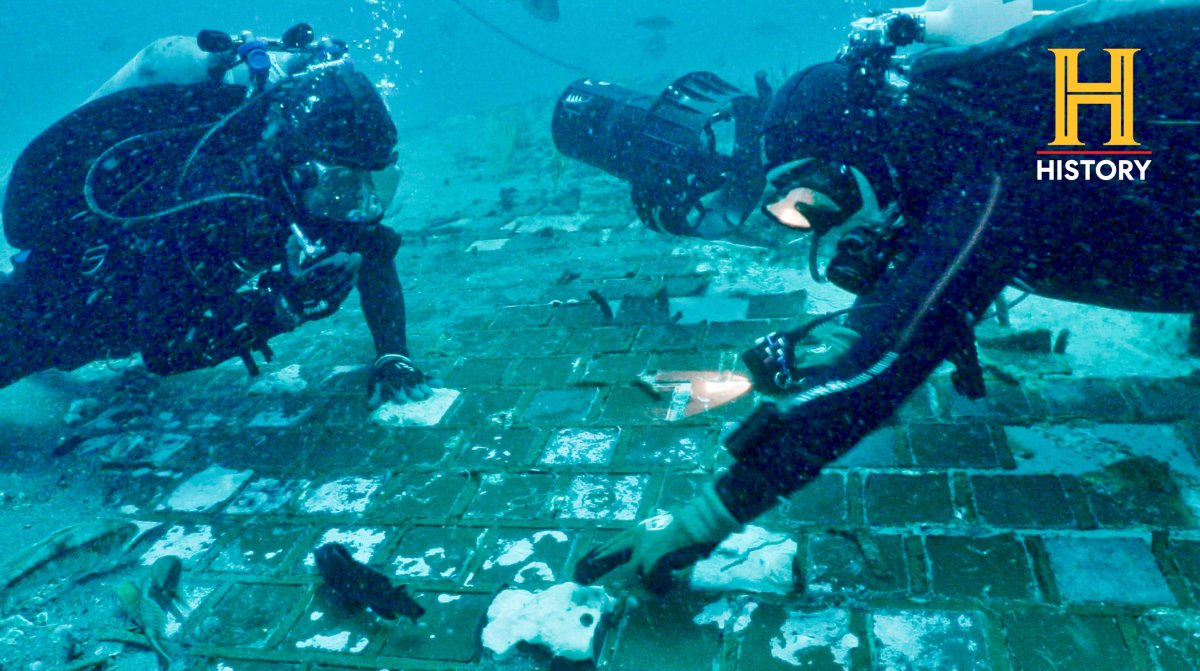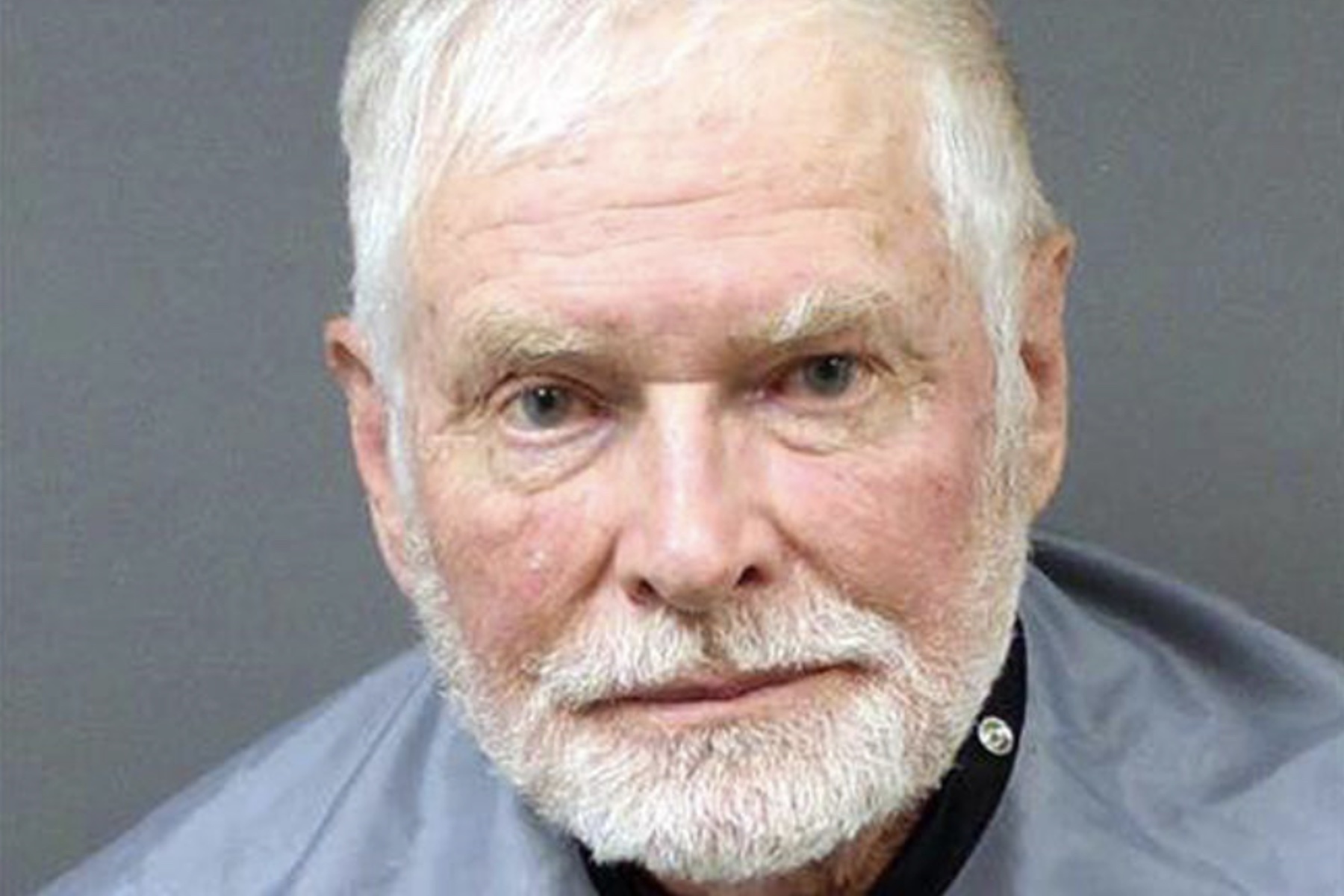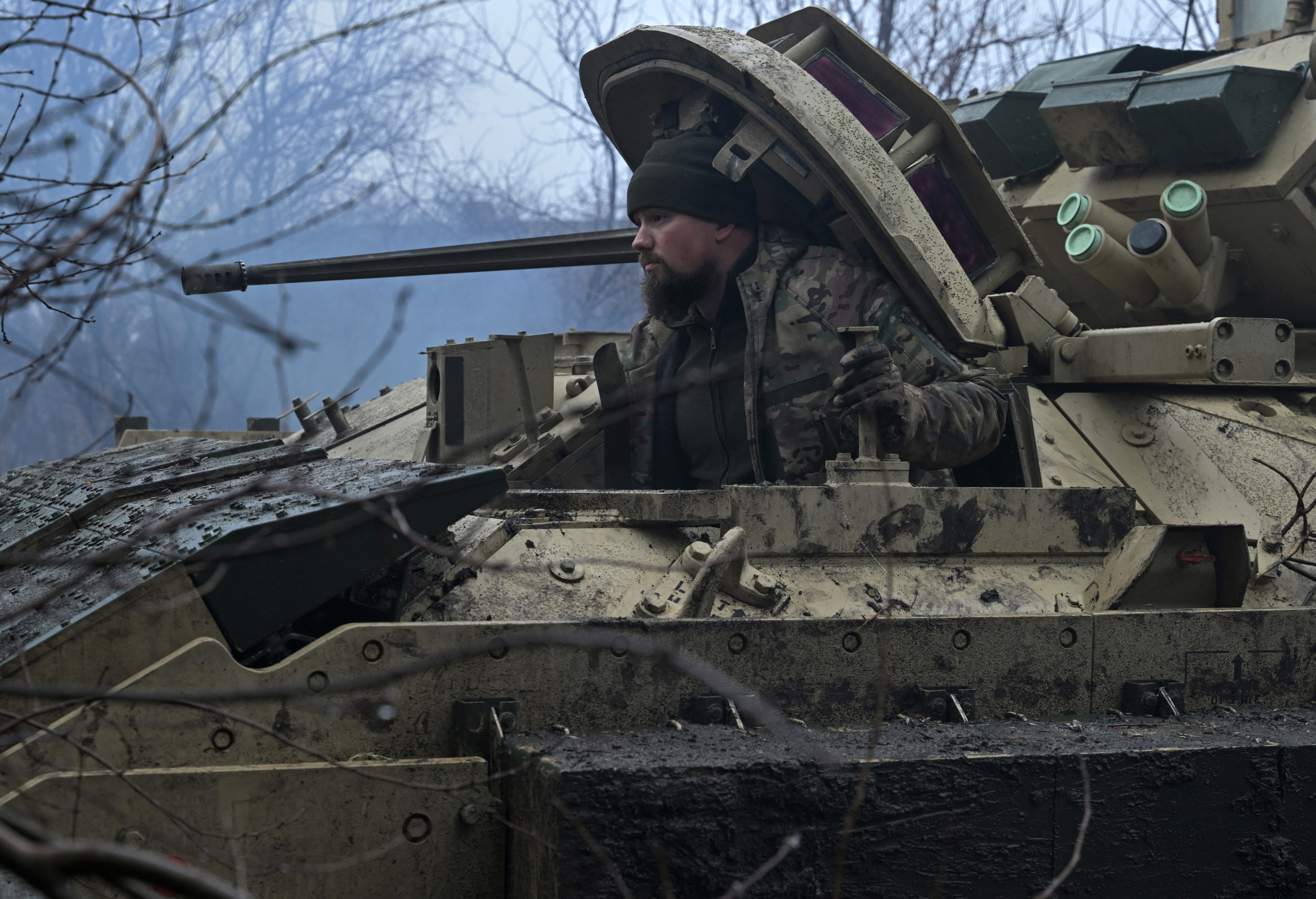Legends about the Bermuda Triangle have circulated for decades, but the superstition has died down in recent years. So does that mean the mysteries were solved? Or do strange things still happen there?
The area, sometimes referred to as the Devil's Triangle, is in a western part of the North Atlantic. In 1964, an American author described several strange instances that had occurred in the area. But reports of disappearances and mysterious occurrences there began in the mid-19th century.
"The Bermuda Triangle legend, although around for about 10 years before, really took off with Vincent Gaddis in 1964 when he penned an article outlining a pattern of strange events in this area. This mostly centered around the mysterious disappearance of Flight 19," historian David O'Keefe told Newsweek. He recently joined a team that went to the area to search for a downed World War II aircraft for the new TV documentary The Bermuda Triangle: Into Cursed Waters.
Flight 19 was the mission name for a group of five torpedo bombers that mysteriously disappeared while flying over the Bermuda Triangle in 1945. The remains of the bombers have never been found, and the reason for their disappearance remains a mystery.
"It opened the previously mentioned pandora's box, with other authors like Charles Berlitz sensationalizing the losses of ships and aircrafts, along with the accounts of survivors who encountered unexplained occurrences in the region," O'Keefe said.
Even though theories and speculation about the triangle have died down, strange things are still happening there.
"As far as the data suggests, sinkings and aircraft losses continue," O'Keefe said. "However, now that we have a better understanding of the area, the sensationalism attached seems to have simmered down, at least for the time being, that is.... Either way, it remains one of the world's great curiosities, and that still captures the imagination of young and old alike."

Where Is the Bermuda Triangle?
The Bermuda Triangle's three points aim toward Miami, Bermuda and Puerto Rico.
One theory is that the area sees rough storms that enter from multiple directions. This can create rough waves, which some believe reach up to 100 feet.
Unsolved Mysteries
Over 50 ships and 20 airplanes are believed to have disappeared in this part of the Atlantic.
Some mysteries, such as the disappearance of the USS Cyclops, which carried coal, remain unsolved. In March 1918, the Cyclops vanished while sailing through the Bermuda Triangle, along with everyone on board. The wreck has never been found, and the cause for its disappearance remains unknown.
Another unexplained occurrence happened in 1881, when the Ellen Austin, an American schooner, sailed into the Bermuda Triangle on a journey from London to New York. The crew spotted another ship sailing aimlessly toward them with not a single soul on board. A salvage crew from the Ellen Austin went aboard and confirmed that the ship was empty, yet it had been sailing perfectly. The captain attempted to bring the empty vessel back, but a storm separated the ships' paths. It is not known what happened to the ship after that, and it has never been found.
While many Bermuda Triangle mysteries remain unsolved, such as Flight 19, wreckage has been found in the area. While the new documentary was being filmed, O'Keefe, along with a team led by marine biologist Mike Barnette, discovered a huge piece of the 1986 space shuttle Challenger in a location near the Triangle.
The Challenger exploded 73 seconds into its flight. All seven people aboard died when the shuttle broke apart 46,000 feet above the Atlantic.
"The discovery came as a distinct shock," O'Keefe said. "Never did we imagine that following the story of Flight 19 and tracking the Martin Mariner rescue aircraft sent out to find the missing planes—which also disappeared—would lead us to this discovery that is so important for American history and the space program.
"One would have thought that all pieces of the shuttle would have been scooped up by NASA over the years, but that was not the case," he continued. "In many ways, although outside the area we have come to call the Bermuda Triangle, the discovery demonstrates there are still plenty of mysteries to be investigated off the coast of Florida stretching out into the Atlantic Ocean."

Is the Bermuda Triangle Dangerous?
Despite the superstitions and tales surrounding the Bermuda Triangle, there is no concrete evidence that the area is actually dangerous.
The Aviation Safety Network and the U.S. Coast Guard have indicated over the years that some of the disappearances can be explained by storm conditions in the area.
Other disappearances are still up for speculation, but the vessels may have been unsafe, meaning the Bermuda Triangle had nothing to do with what happened to them.
"As with human nature, whenever we cannot find answers to a given question, we open a pandora's box of hypotheses to soothe our intellectual hunger and curiosity," O'Keefe said. "That is what this area, a high-traffic area with plenty of unexplained happenings, has teased us with for centuries. But only now, with new processes and technologies at our fingertips that provide more jigsaw puzzle pieces into the box, so to speak, can we now see a more distinct image forming and gain a better understanding of all phenomena in this region."
He said the documentary's purpose is to identify and name some of the hundreds of wreck sites that are in the Bermuda Triangle and to "bring closure to some of the families who have lost loved ones and never understood why."
The Bermuda Triangle: Into Cursed Waters will premiere November 22 at 10 p.m. ET on the History Channel.
Uncommon Knowledge
Newsweek is committed to challenging conventional wisdom and finding connections in the search for common ground.
Newsweek is committed to challenging conventional wisdom and finding connections in the search for common ground.
About the writer
Robyn White is a Newsweek Nature Reporter based in London, UK. Her focus is reporting on wildlife, science and the ... Read more
To read how Newsweek uses AI as a newsroom tool, Click here.








